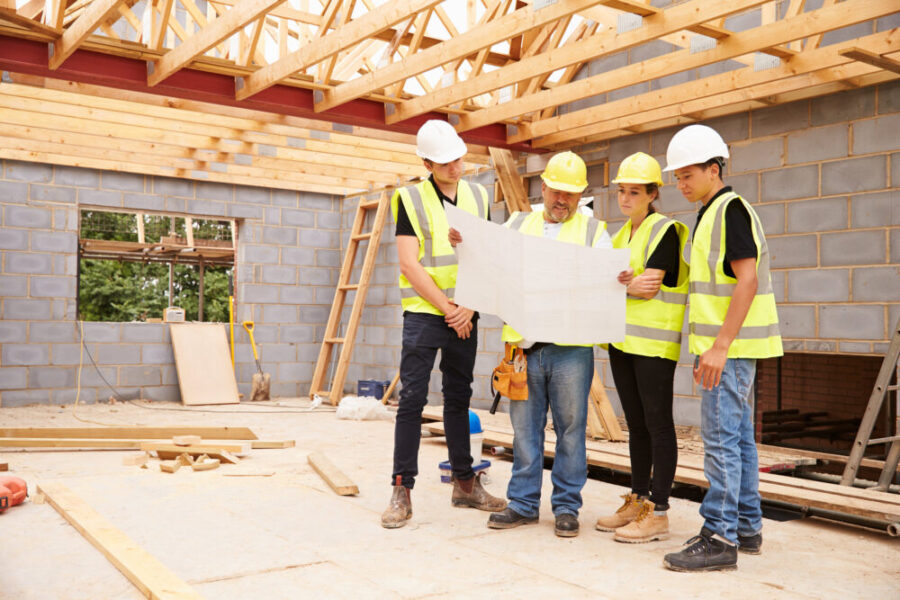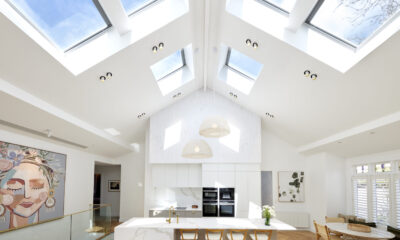The Pros and Cons of Building a Custom Home vs. Buying an Existing One
When you’re in the market to buy a home, there are many factors to consider: your budget, where to buy, when to buy, how to finance, and more.
One of the first questions you must settle is whether to buy an existing home or build a new one. Both can be good options depending on your personal circumstances and preferences.
In this article, we’ll go over the pros and cons of each so that you can make a more informed home-buying decision. Let’s get started!
Pros of Buying an Existing Home
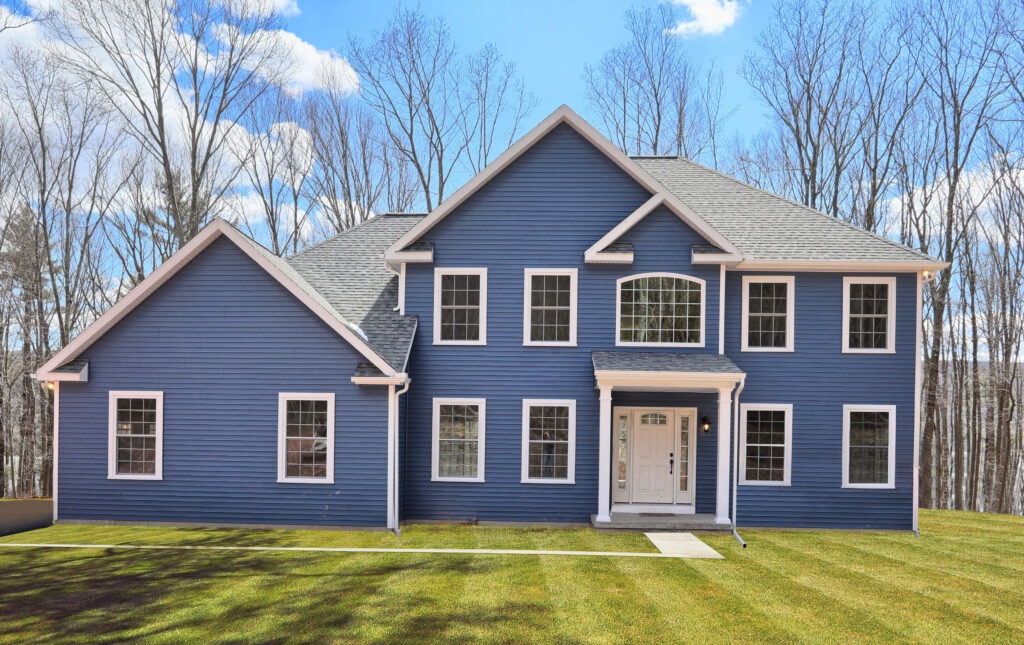
Source: finelinehomes.com
1. Lower cost
Generally speaking, buying an existing house is cheaper than building a new one because you don’t have to pay construction costs. Plus, traditional mortgages are generally considered less risky than land loans and tend to require lower down payments and interest rates as a result. Finally, there’s more room to negotiate the price of an existing home. With unbuilt homes, you usually don’t have that luxury.
2. Convenience
Buying an existing home is often more convenient because it allows you to move in relatively quickly. Closing usually only takes 30-45 days. Plus, existing homes are generally move-in ready, meaning you won’t need to worry about making any big renovations in order to live in the house. In contrast, building a home requires you to wait several months before it’s move-in ready.
3. Potential for improvement
Even if an existing home has issues or elements you don’t like, you can always renovate them later when you have the time and money. For example, if you don’t like the gas-burning stove and prefer an electric one, you can always upgrade it. Just because the home was pre-owned doesn’t mean you can’t make adjustments to it.
4. Established neighborhood
For the most part, existing homes will be part of established neighborhoods. So if you want to move into a community (or into the city especially), buying an existing home is the way to go. Why? It’s harder to find an empty lot in an area with deep roots since most of the land has probably already been developed.
5. Mature landscaping
Another perk of buying an existing home is that you’re more likely to inherit mature landscaping. That means you won’t need to start from scratch by planting bushes, trees, and other vegetation. It’ll already be there (though you may need to invest in some upkeep).
Cons of Buying an Existing Home
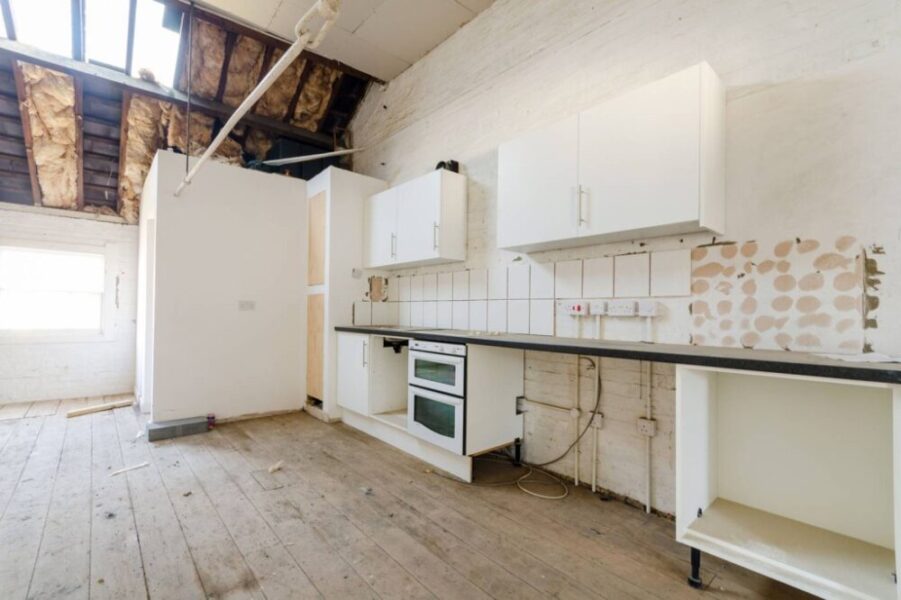
Source: foxtons.co.uk
1. Limited options
When you buy an existing home, your selection will be limited to what’s on the market. Even if you have many options, it may be hard to find a home that fits your style and taste and you may need to compromise. In short, you can’t count on finding something that checks off everything on your list.
2. Shopping Stress
Looking at homes can be time-consuming and stressful. This is especially true in a seller’s market, where you may need to act fast, engage in bidding wars, and have many offers rejected. In contrast, when you build your own home, you can take your time.
3. Maintenance and repair issues
With existing homes, there’s a much higher chance of running into maintenance issues and items that need repair (think appliances, HVAC systems, plumbing, etc.). The older the home is, the more likely you’ll run into hidden issues.
4. Environmental concerns
Older homes are also more likely to come with environmental risks. For example, they may be less energy-efficient, which can hurt the environment and lead to higher energy costs. Furthermore, homes built before the 1970s may contain hazardous materials like lead paint, which can be especially dangerous to children.
Pros of Building a New Home
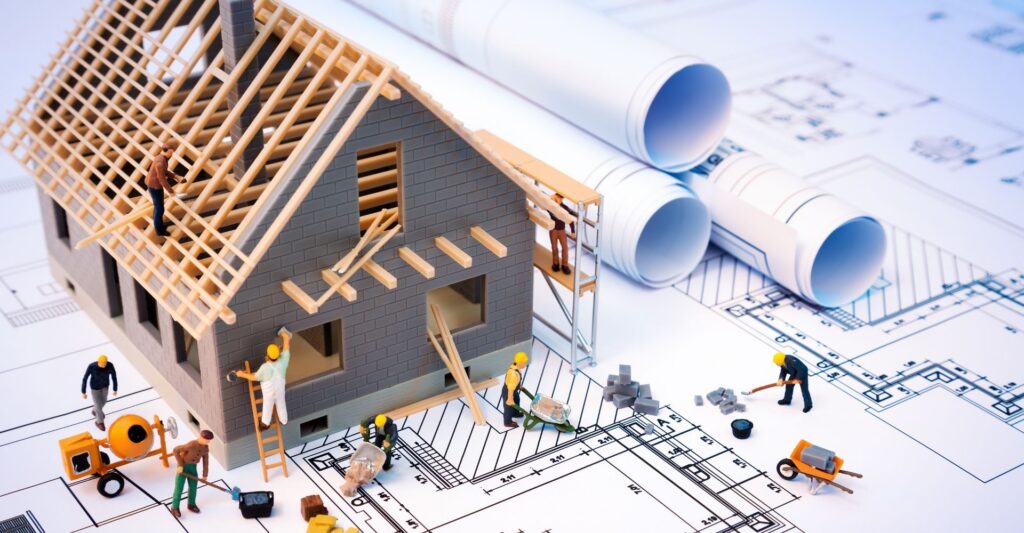
Source: helenpainter.com
1. Complete customization
An obvious benefit of building your own home is that you can fully customize it. You get to take charge of the design, the floor plan, the cabinetry, and the appliances—it’s all personalizable. For most homeowners, having complete control over the look of their home gives them more satisfaction.
2. Less competition
When you build, you also don’t have to worry about competing with other homebuyers. Sure, you’ll still need to find the right piece of land and choose a home builder to work with. But from there on out, you’ll face zero competition.
4. Fewer maintenance issues
Since they’ve never been lived in before, brand-new homes are less likely to have maintenance issues—especially during the first few years. According to Sweeney Construction Law, many builders provide warranties for the first year or even longer depending on the type of issue. You just need to know where to look in the construction contract.
5. Better energy efficiency
These days, many homes are built with energy efficiency in mind. For example, they might come with smart thermostats that automatically adjust the temperature to save energy or Energy Star-certified appliances.
Cons of Building a New Home
1. Higher cost
As is often the case with new products, new homes tend to cost more. You pay a premium because it’s never been lived in before. Plus, unlike with existing homes, you have to pay for the construction of new homes. Financing can be harder to get, too. Construction loans tend to require higher down payments and interest rates because there’s no collateral to back the loan.
2. Unexpected costs and delays
Construction projects are notorious for delays and cost overruns. On average, 72% of projects are delayed with a 38% increase in the originally contracted duration, and 63% of projects experience cost overruns. This can happen for many reasons, not the least of which are supply chain issues, such as the lumber shortage during the COVID-19 pandemic. So it’s always a good idea to budget for the unexpected or offset this risk by signing a lump-sum contract instead of a cost-plus contract (the former of which puts the risk of cost overruns on the builder).
3. More time and stress
Building your own house takes time. On average, custom-built homes take nine months to build, and personalized production homes take seven months. That’s much longer than the 30-45 days it takes to close on an existing house. During that time, you’ll have to pay to live somewhere else and you could get stuck paying for construction and your current mortgage or rent—which could be stressful, to say the least.
The Final Verdict
At the end of the day, the choice to buy or build is up to you. Decide what matters to you most in terms of cost, time, convenience, control, and potential issues. Then determine which option most aligns with your goals. Now that you’ve finished this article, you’re better positioned to make an informed decision.
I'm Bobana Hemun, a proud graduate of the Faculty of Medicine in Novi Sad. With a background as a professional occupational therapist, I initially dedicated my career to the Oncology Institute of Vojvodina. However, my journey eventually led me to the dynamic world of SEO. Outside of work, I find solace in relaxing yoga sessions, rejuvenating hikes in nature, and nurturing my beloved plants.

